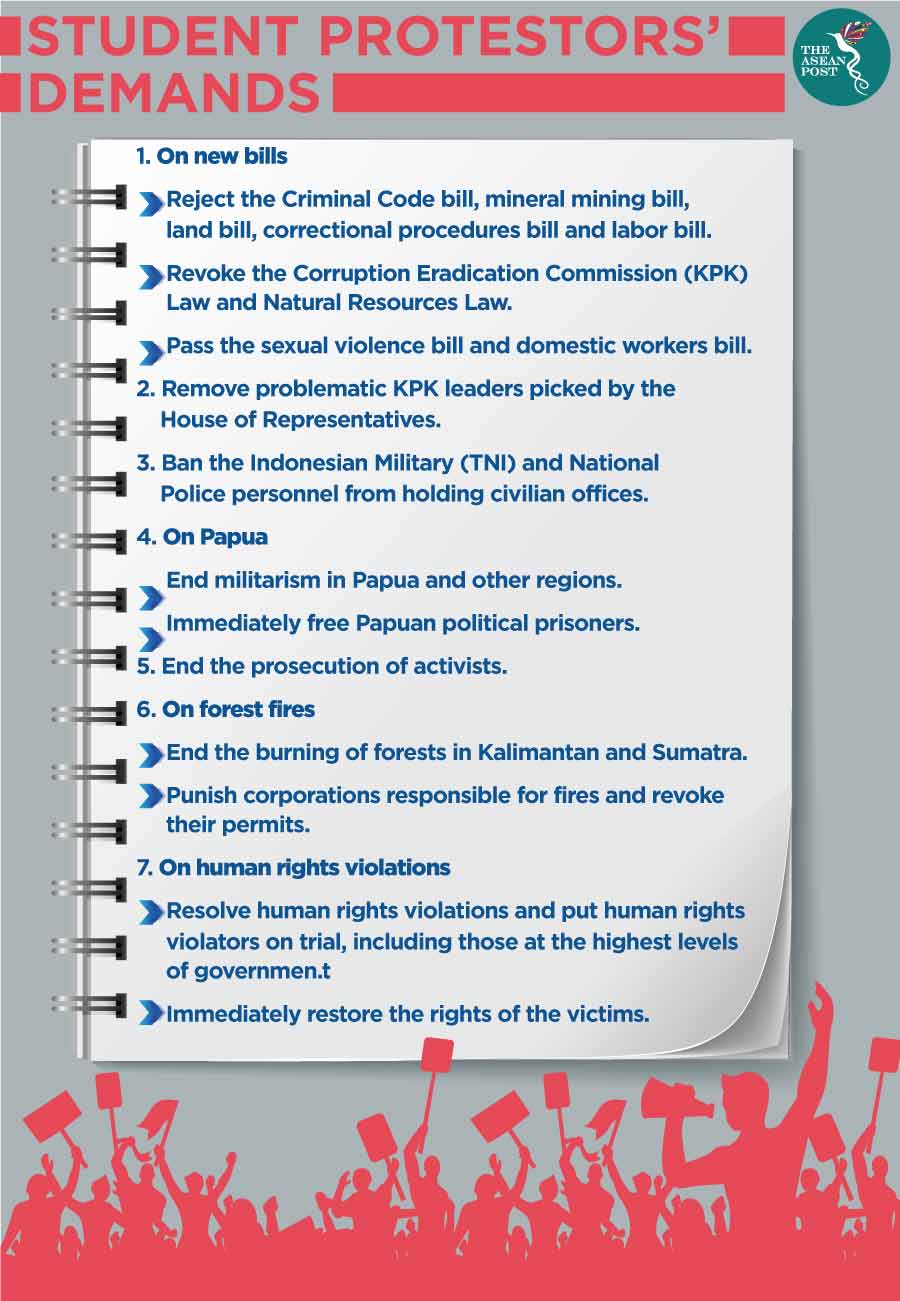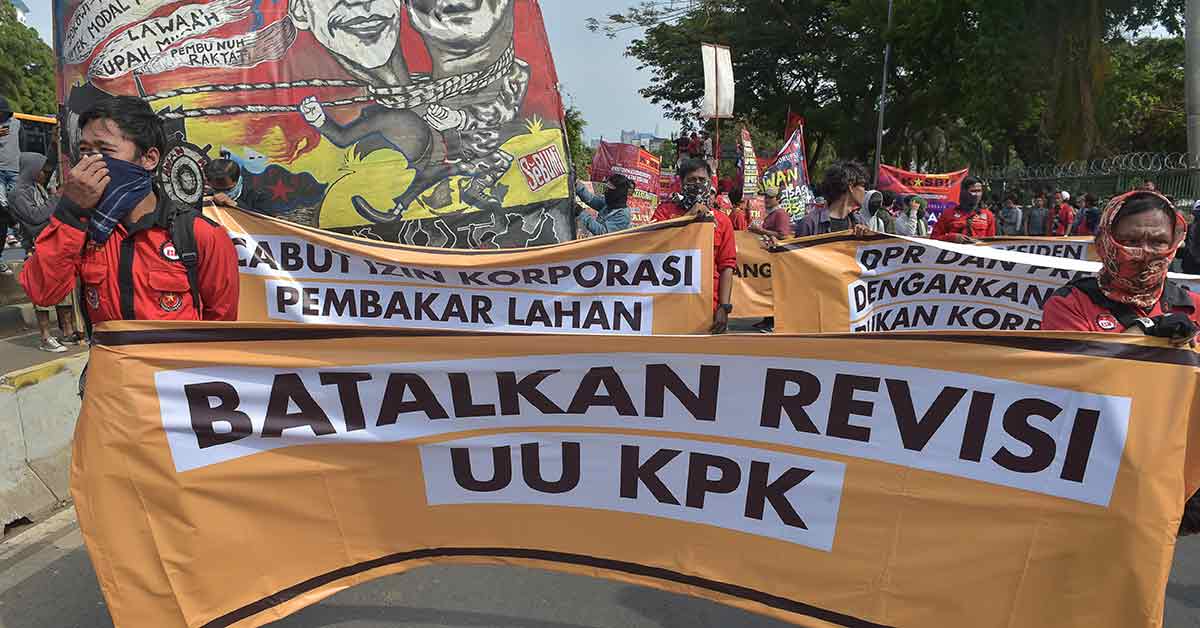Students in Indonesia have been protesting on the streets since late September. Many observers have referred to the protests as “the largest student movement since 1998”. The 1998 student movement eventually brought down the country’s president at that time, Suharto.
The protests, due to its large scale, is garnering attention all around the world. Both local and international media have been trying to capture what’s been happening on the streets as these protests rage on. While much of what’s been reported is accurate to a degree, Indonesians have accused some media of misrepresenting the protests to fit their own agendas.
“The bill to criminalize premarital sex is one of the reasons for the demonstrations, yes, but that’s the least important one. All international media seems to be highlighting is that but that’s for clickbait more than anything else,” an anonymous source from Indonesia told The ASEAN Post (TAP).
The bill the source was speaking of is the revision to the Criminal Code (RKUHP) which has garnered a lot of attention from various media outlets. However, many Indonesians - especially those involved in the demonstrations - feel that putting the spotlight on only one of the many issues being protested effectively takes away importance on the other issues.
Including rejecting the premarital sex ban, the students have seven demands in total, largely revolving around the theme of human rights. (1) Reject the Criminal Code bill, mineral mining bill, land bill, correctional procedures bill and labor bill; revoke the Corruption Eradication Commission (KPK) Law and Natural Resources Law; and pass the sexual violence bill and domestic workers bill. (2) Remove problematic KPK leaders picked by the House of Representatives. (3) Ban the Indonesian Military (TNI) and National Police personnel from holding civilian offices. (4) End militarism in Papua and other regions and immediately free Papuan political prisoners. (5) End the prosecution of activists. (6) End the burning of forests in Kalimantan and Sumatra and punish corporations responsible for fires and revoke their permits. (7) Resolve human rights violations and put human rights violators on trial, including those at the highest levels of government; as well as immediately restore the rights of the victims.

Looking at the seven issues involved makes it clear that each of these issues are just as important as the next, especially to those who believe that these are causes worth fighting for. A simple example is the issue of the prosecution of activists, or the militarism in Papua. It is understandable that some would feel that it is unfair to put matters such as these on the backburner.
Media responsibility
It is the media that people rely on to get accurate facts about what is happening and how it is important to them. Therefore, the media, due to its power of information, has an important responsibility in the protection of human rights.
When it comes to international media, this responsibility is further heightened especially in locations where media freedom may not be on par with some other countries. This is especially pertinent in a country like Indonesia which, according to the Reporters Without Borders’ 2019 World Press Freedom Index, is ranked 124th out of 180 countries.
In the case of the student demonstrations in Indonesia, it would not be too far a stretch of the imagination that some international media would be able to report on matters that the local media would be unable to. Therefore, it is up to these media to provide comprehensive coverage of the goings-on as far as the demonstrations are concerned.
Nevertheless, while disgruntled Indonesians may believe that some international media outlets have been reporting on the matter in a way that fits their own agenda, there are always two sides of the coin. It is equally important to understand that there is no purpose of coverage if that coverage will not gain any traction. One could imagine that focusing on the premarital sex ban was the best way to give the whole demonstration the widespread attention that it otherwise may not have gotten.
This article’s purpose is not to attack other media outlets, but an attempt at telling a story from the side of the student protestors in Indonesia. TAP understands the complexity of the work involved in the media industry and commends any attempt to bring important issues to light.
Related articles:
